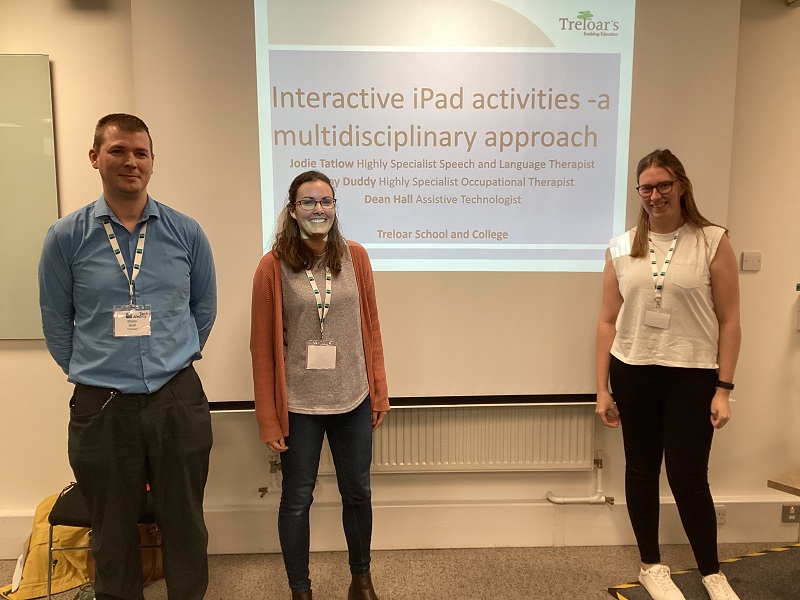
Team Treloar’s at TechAbility Conference
On Wednesday 16th November, Team Treloar’s attended the TechAbility Conference 2022 in Birmingham. The conference is a collection of presenters, exhibitors and organisations, all with a shared interest in supporting aspects of assistive technology.
What is assistive technology?
Assistive technology is a term that encompasses the systems and services that help make technology accessible to our students. At Treloar’s our Assistive Technology team are constantly researching new, effective ways to use technology to mitigate the disabilities of our students. Treloar’s has a commitment that every learner will have access to appropriate technology to enhance and support their education and independence. If we can enable our students to access technology, it helps them gain independence, giving them more control of their environment.
What is TechAbility?
TechAbility is an Assistive Technology support service. They aim to improve outcomes for people with Learning Difficulties and Disabilities in further education and adult care. The service aims to improve outcomes for people with Learning Difficulties and Disabilities (LDD) in mainstream and specialist further education colleges, and also in adult care settings.
TechAbility Conference 2022
This year’s theme is ‘Assistive Technology – everyone’s responsibility’, which means that if we want the assistive technology to work, it must be supported by all staff. Team Treloar’s was there to share their practice in this area. During this face-to-face conference, Jodie Tatlow, our Highly Specialist Speech and Language Therapist, Jenny Duddy, our Highly Specialist Occupational Therapist and Dean Hall, our Assistive Technologist, delivered a presentation called Interactive iPad activities – a multidisciplinary approach.
Jodie said:
TechAbility Conference is a good place for sharing knowledge and for learning from others. At the conference, we spoke about our ongoing project of using iPads with our students. Treloar’s College has increased the active and independent use of iPads by learners on the Sensory and Interactive curriculum. A project group consisting of Assistive Technologists, Occupational Therapists and a Speech and Language Therapist was formed to look at meaningful activities and how students could access these, especially for those who use access switches (switches that allow their users to activate assistive technology devices in their environment). Dean, Jenny and I attended the conference as representatives of that multidisciplinary team.
Many Treloar’s students use switches to access the computer but not all are able to access iPads. The multidisciplinary project team has spent a great deal of time exploring this further, trying to improve the functionality of iPads for our students in a way that meets their therapeutic goals and is motivating and achievable. The project team has weekly meetings with the Assistive Technology Team to review how iPads are being used. It’s not easy for Treloar’s students to use a switch with an iPad. The team has been trying to come up with solutions for students to be able to learn to use switches to, for example, access various educational apps, look through family photos, watch YouTube, play Clarion, choose and listen to audiobooks, take photos or play games. It often means that every switch required bespoke programming as the way students use switches depends on their personal needs. Consequently, the Assistive Technology Team has been working on bespoke solutions, unique to each of our students’ needs.
Initially, the project was based on students in interactive and sensory classes, but with time, it has expanded to primary classes and is still ongoing. The team has been exploring different apps, trying to create a database of apps matched with a switch software recipe. Moreover, the Team has been trying to link it all to their therapy targets, making the tasks for students more motivating for students. Developing the use of a switch would mean that more interactive-sensory students could contribute to their annual reviews by, for example, indicating which photos they prefer.
During the conference, Jodie, Jenny and Dean demonstrated using Switch Recipes as a way of unlocking many apps and web programmes for learners who can’t use direct access. A training and support programme has been established so that the activities can be implemented by teaching and learning support staff.
If you would like to find out more about our Occupational Therapy Department or the Assistive Technology Department, click on the link and read more.
